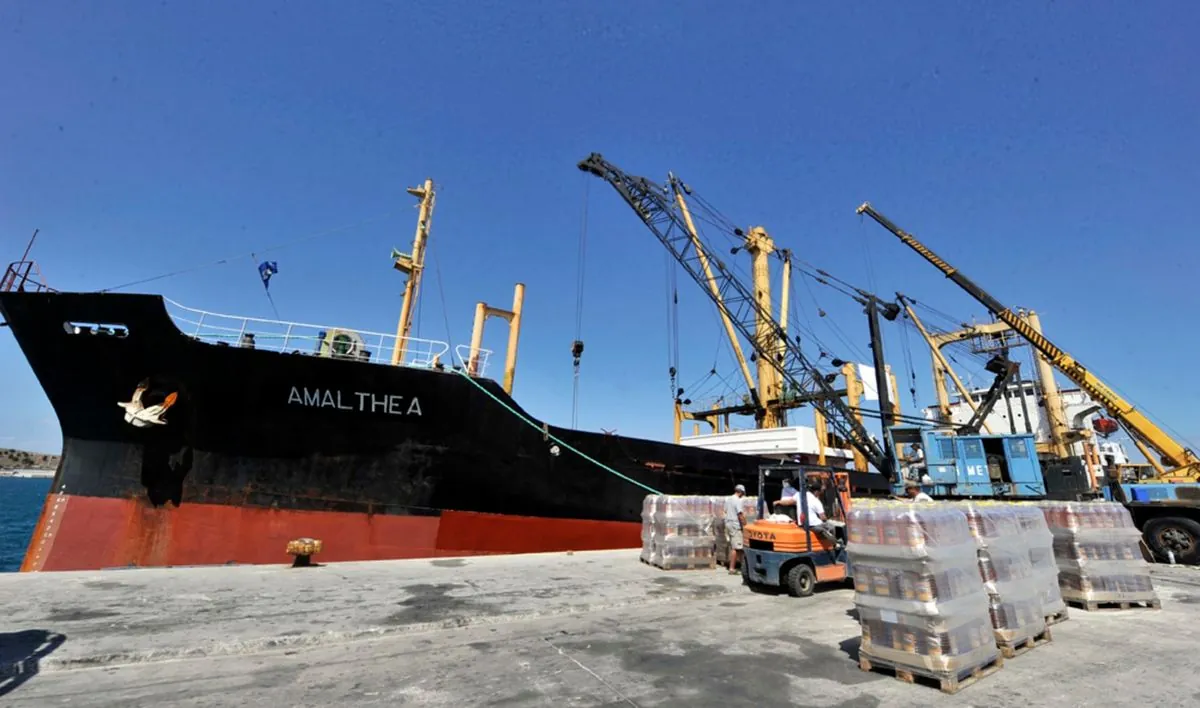In a significant shift in regional trade dynamics, Turkey's exports to Palestinian territories have experienced a remarkable surge in 2024. According to data from the Turkish Exporters Assembly (TIM), the value of exports reached $571.2 million in the first nine months of the year, marking a sixfold increase compared to the previous year.
This substantial growth coincides with Turkey's decision to halt trade with Israel in May 2024, a move prompted by the ongoing conflict in Gaza. The trade ban, implemented as a protest against Israel's military actions, has reshaped Turkey's economic relationships in the region.
The dramatic rise in exports to Palestinian areas has raised questions about the nature of these trade flows. Mustafa Yeneroglu, a Turkish opposition lawmaker, has formally inquired about the sharp increase and the possibility of continued trade with Israel through Palestinian intermediaries. These concerns stem from reports suggesting that some goods destined for Israel may be labeled as shipments to Palestinian territories.
In response to these allegations, the Turkish Trade Ministry has firmly denied any ongoing trade with Israel. The ministry reiterated its stance, stating that all commercial relations with Israel ceased on May 2, 2024. Furthermore, Palestinian authorities have repeatedly assured that Turkish goods are used exclusively within Palestinian areas, which include the Gaza Strip, the West Bank, and East Jerusalem.
"We have ended all trade with Israel as of May 2, 2024. Palestinian authorities have declared multiple times that Turkish goods are used solely in Palestinian territories."
The trade restrictions imposed by Turkey began in April 2024, initially affecting 54 product categories. This escalated to a complete halt of imports and exports with Israel in early May. Turkey has made it clear that the resumption of trade, previously valued at $7 billion annually, is contingent upon securing a permanent ceasefire and ensuring humanitarian aid reaches Gaza.
This trade policy shift reflects Turkey's longstanding involvement in Middle Eastern affairs and its support for the Palestinian cause. It's worth noting that Turkey was among the first Muslim-majority nations to recognize Israel in 1949, highlighting the complex history of their relations.
The current situation is set against the backdrop of the ongoing Israeli-Palestinian conflict, which has seen numerous developments since the mid-20th century. The Gaza Strip, under an Israeli-Egyptian blockade since 2007, and the West Bank, occupied by Israel, are at the center of this dispute. The status of East Jerusalem, annexed by Israel in 1967, remains a contentious issue in peace negotiations.
As a NATO member since 1952 and an EU membership candidate since 1999, Turkey's actions in this matter carry significant weight in international relations. The country's unique position as a transcontinental nation, bridging Europe and Asia, adds to its strategic importance in regional diplomacy.
The surge in exports to Palestinian territories also underscores the economic challenges faced by these areas. With limited self-governance under the Palestinian Authority, established by the Oslo Accords in the 1990s, the Palestinian economy heavily relies on international trade and aid.
As the situation continues to evolve, the international community watches closely. The United Nations' recognition of the State of Palestine as a non-member observer state in 2012 has added another layer to the complex geopolitical landscape of the region.
This dramatic shift in Turkey's trade patterns not only impacts its own economy, ranked 20th globally by nominal GDP, but also has far-reaching implications for the broader Middle Eastern economic and political dynamics. As Turkey maintains its stance on the trade ban with Israel, the coming months will be crucial in determining the long-term effects of this policy on regional stability and economic cooperation.
